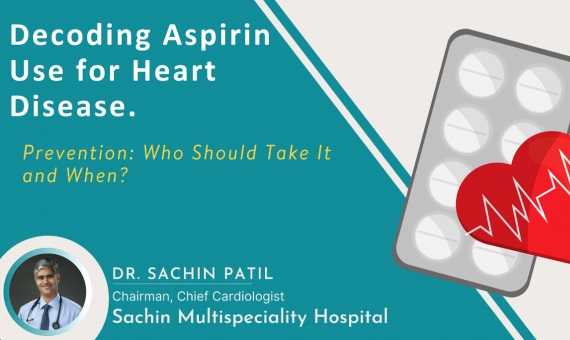
Blog
Decoding Aspirin Use for Heart Disease Prevention
Aspirin Use
Aspirin, a medication that has been a staple in medicine cabinets for decades, has garnered significant attention for its potential role in preventing heart disease. However, not everyone should reach for the aspirin bottle without proper guidance. At Sachin Multispeciality Hospital, we believe in informed decisions when it comes to heart health. In this blog, we will decode the use of aspirin for heart disease prevention, outlining who should consider it and when.
Understanding Aspirin:
Aspirin, also known as acetylsalicylic acid, is a nonsteroidal anti-inflammatory drug (NSAID) with antiplatelet properties. It works by inhibiting the formation of blood clots, which can block arteries and lead to heart attacks and strokes.

Who Should Consider Aspirin for Heart Disease Prevention?
Diabetics: People with diabetes are at increased risk of heart disease. Aspirin therapy may be considered for diabetics, especially if they have other risk factors like high blood pressure or high cholesterol.
Certain Age Groups: The decision to use aspirin becomes more nuanced with age. For people aged 50 to 59, aspirin might be considered if they have a 10% or greater risk of heart disease and are not at increased risk of bleeding. In those aged 60 to 69, the decision depends on individual risk factors.


